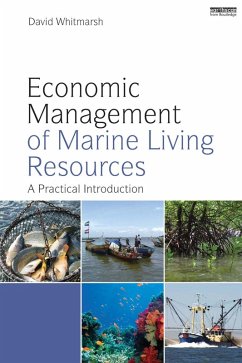This textbook has two main objectives. Firstly, it outlines the problems associated with the management and conservation of marine living resources, with particular attention given to the twin concepts of economic value and sustainability. It demonstrates the contribution that economics can make to understanding these problems as well as helping to frame policies to mitigate them. Secondly, it looks in detail at the key methods that may be used to collect and analyse socio-economic data, oriented towards the information needs of decision makers and stakeholders involved in fisheries management. Together, these two objectives address the question: how does society make the best use of its marine living resources?
Dieser Download kann aus rechtlichen Gründen nur mit Rechnungsadresse in A, B, BG, CY, CZ, D, DK, EW, E, FIN, F, GR, HR, H, IRL, I, LT, L, LR, M, NL, PL, P, R, S, SLO, SK ausgeliefert werden.


